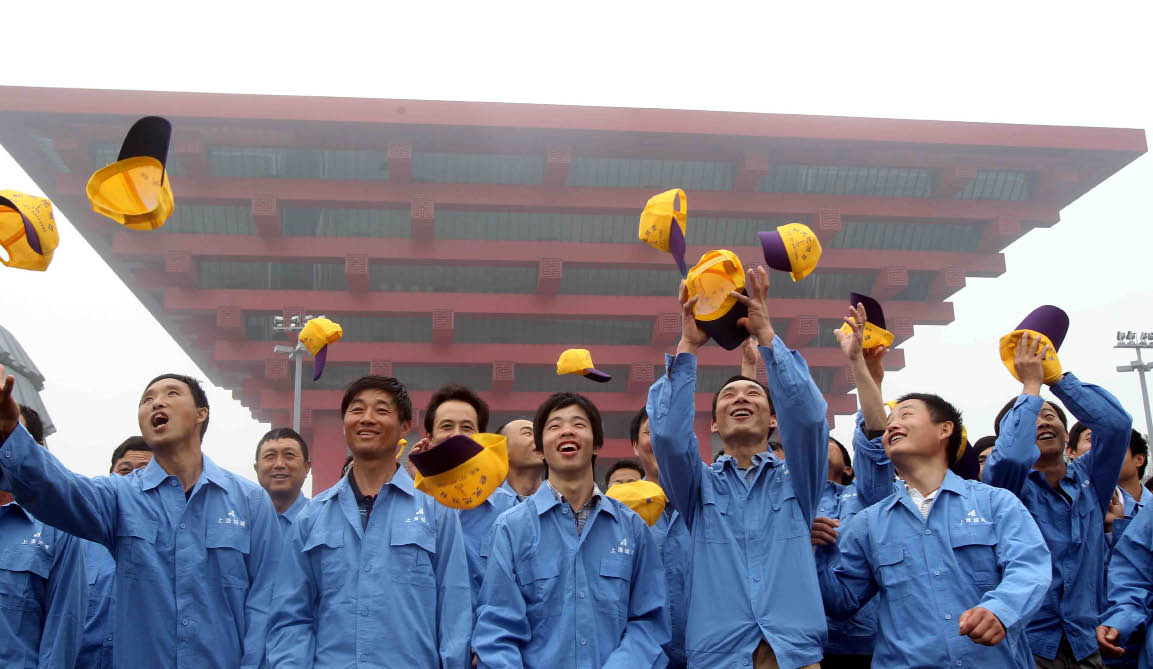| Improving the Lot of the Workforce
By special correspondent LIU QIONG
ZHANG Haojun wipes away a tear at a screening of After Shock, a new blockbuster release. He is not the only one to do so, in this audience – full not of strangers, but of workmates, of fellow production-line workers.
The movie, portraying the Tangshan Earthquake of 1976, is being screened not in some plush downtown movie theater either, but in the in-house cinema of Zhejiang Jinpan Mechanic and Electric Industry Co., Ltd.
Off-duty Life
 |
|
A job well done: Shanghai Urban Construction Group organizes visits to the World Expo for migrant workers who took part in its construction. |
Zhejiang Jinpan is an export-oriented producer of mechanical and electrical products, employing over 1,000 workers from different parts of China. The 32-year-old Zhang Haojun is from Anhui, which he left 12 years ago, since then moving to Fujian, Jiangsu and Zhejiang provinces as a migrant worker. Like most migrant workers who leave their homes and families behind to make a living in strange cities, Zhang’s spare time is usually spent “sleeping or chatting.” The colorful metropolitan life seems not to suit the likes of this migrant laborer.
Thanks to an introduction by another Anhui worker, Zhang Haojun got an assembly line job at Jinpan two years ago. He soon discovered that employees had access to a free cinema, library, and Karaoke room and to exercise facilities too, including standard basketball courts and ping-pong rooms.
As Zhang Haojun admits, his horizons were very limited: he was oblivious to virtually everything in the outside world apart from the weather forecasts on his cell phone. “Now once I’ve finished work I can use company facilities to watch TV, read books, play basketball or Chinese chess. I can watch a film for free every week too. It’s great.”
When asked how the company came up with the idea of building a movie theater, Jinpan’s chairman Wu Mingfang takes the time to fully explain. Their low level of education condemns migrant workers, for the most part, to casual labor and a lifestyle out of step with modern urban living. These facts may result in discrimination against them which in turn produces a sense of alienation. “The after-hours life of employees may not seem like an important concern for the company, but if alienation leads to something worse, it could significantly harm the employees and have a malign impact on the company itself.” Wu Mingfang believes that providing somewhere for off-shift workers to go enriches their leisure, improves the company’s reputation as an employer, and results in people who feel happy and settled at work.
| 